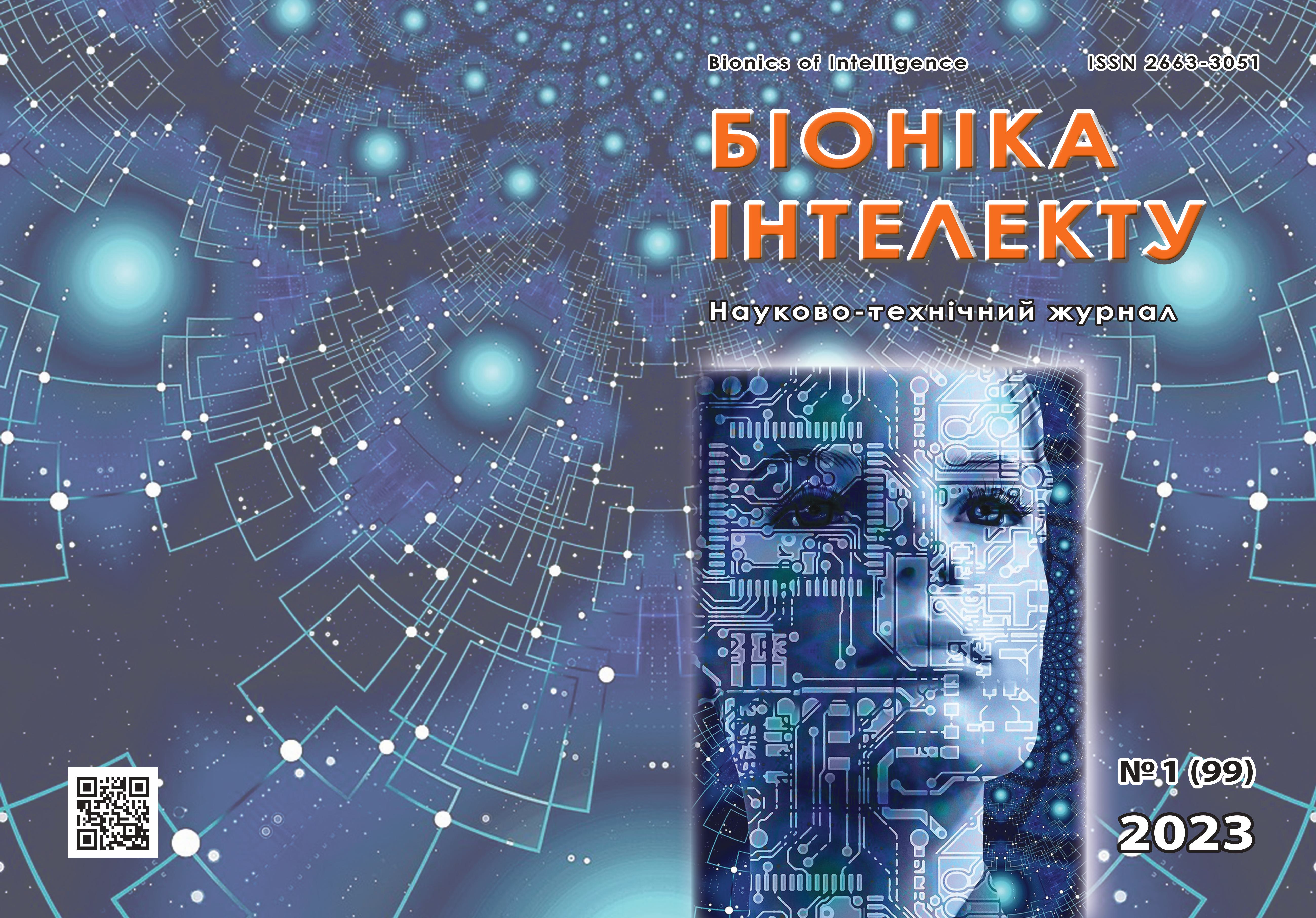Дослідження алгоритмів оптимізації енергоменеджменту в транспортних системах для зменшення впливу на навколишнє середовище
DOI:
https://doi.org/10.30837/bi.2023.1(99).10Ключові слова:
ТРАНСПОРТНІ СИСТЕМИ, АЛГОРИТМИ ОПТИМІЗАЦІЇ, ЕНЕРГОМЕНЕДЖМЕНТ, ЕКОЛОГІЧНО ЧИСТІ АЛГОРИТМИАнотація
Об’єктом дослідження є технології алгоритмів оптимізації керування енергоспоживанням у транспортних системах. Метою роботи є дослідження та аналіз ефективності алгоритмів оптимізації для зменшення екологічного впливу, виділення критеріїв та методів для проведення порівняльного аналізу. Розглянуто існуючі алгоритми оптимізації керування енергоспоживанням у транспортних системах, досліджено їх переваги та недоліки та принципи роботи, описано та продемонстровано методи порівняння та запропоновано формули для обчислення числових показників.
Посилання
U.S. Bureau of Transportation Statistics. 2018. URL: https://www.bts.gov/transportation-economic-trends/tet-2018-chapter-2-contributioneconomy
European Union. Statistical Pocketbook 2017: EU Transport in Figures; Publications Office of the European Union: Brussels, Belgium, 2017; ISBN 978-992-79-62311-0.
Chen, G.; Wu, X.; Guo, J.; Meng, J.; Li, C. Global overview for energy use of the world economy: Household-consumption-based accounting based on the world input-output database (WIOD). Energy Econ. 2019, 81, 835–847.
United Nations Department of Economics and Social Affairs. 2019. URL: https://population.un.org/wpp/ Download/Standard/Population/
Bektaş, T.; Ehmke, J.F.; Psaraftis, H.N.; Puchinger, J. The role of operational research in green freight transportation. Eur. J. Oper. Res. 2019, 274, 807–823.
Juan, A.; Mendez, C.; Faulin, J.; De Armas, J.; Grasman, S. Electric vehicles in logistics and transportation: A survey on emerging environmental, strategic, and operational challenges. Energies 2016, 9, 86.
Fan, Y.V.; Klemeš, J.J.; Walmsley, T.G.; Perry, S. Minimising energy consumption and environmental burden of freight transport using a novel graphical decision-making tool. Renew. Sustain. Energy Rev. 2019, 114, 109335.
Dekker, R.; Bloemhof, J.; Mallidis, I. Operations Research for green logistics–An overview of aspects, issues, contributions and challenges. Eur. J. Oper. Res. 2012, 219, 671–679.
Faulin, J.; Grasman, S.E.; Juan, A.A.; Hirsch, P. Sustainable Transportation: Concepts and Current Practices. In Sustainable Transportation and Smart Logistics; Elsevier: Amsterdam, The Netherlands, 2019; pp. 3–23.
Neumann, F.; Witt, C. Combinatorial optimization and computational complexity. In Bioinspired Computation in Combinatorial Optimization; Springer: Berlin, Germany, 2010; pp. 9–19.
Glover, F.W.; Kochenberger, G.A. Handbook of Metaheuristics; Springer Science & Business Media: Berlin, Germany, 2006; Volume 57.
Psaraftis, H.N.; Kontovas, C.A. Speed models for energy-efficient maritime transportation: A taxonomy and survey. Transp. Res. Part C Emerg. Technol. 2013, 26, 331–351.
Ríos-Mercado, R.Z.; Borraz-Sánchez, C. Optimization problems in natural gas transportation systems: A state-of-the-art review. Appl. Energy 2015, 147, 536–555.
Yang, X.; Li, X.; Ning, B.; Tang, T. A survey on energy-efficient train operation for urban rail transit. IEEE Trans. Intell. Transp. Syst. 2015, 17, 2–13.
Tranfield, D.; Denyer, D.; Smart, P. Towards a methodology for developing evidence-informed management knowledge by means of systematic review. Br. J. Manag. 2003, 14, 207–222.

